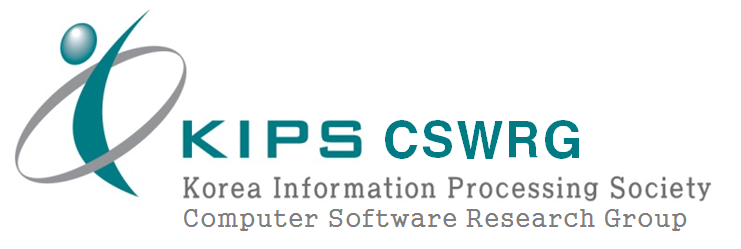 Workshops
Workshops
International Workshop on Complex Networks Dynamic Behavior Mining (CNDBM-2019)
Call for papersThe international workshop on Complex Networks Dynamic Behavior Mining at bringing together researchers and practitioners from different science communities working on areas related to complex networks. The workshop targets two types of contributions from prospective authors: Contributions dealing of theoretical tools and methods to solve practical problems as well as applications. Both contributions should stimulate interaction between theoreticians and practitioners.
General Co-Chairs: Jianrui Chen
 , Jianshe Wu
, Jianshe Wu

Authors are encouraged to submit both theoretical and applied papers on their research in complex networks. Topics for the workshop include, but are not limited to:
- Distributed Decision Making
- Models of Complex Networks
- Structural Network Properties and Analysis
- Complex Networks and Epidemics
- Nonlinear analysis and differential equations
- Community Structure in Networks
- Formation of Complex Networks
- Generation of Complex Networks
- Community Detection in Complex Networks
- Motif Discovery in Complex Networks
- Visualization of Complex Networks
- Complex network mining
- Dynamics and evolution patterns of complex networks
- Community discovery in complex social networks
- Visual representation of complex networks
- Methodological problems in complex network studies
- Applications of complex network analysis
CFP: Download
Important Schedule
International Workshop on Process and Social Media Mining (PSMM-2019)
Call for papersThe international workshop on Process and Social Media Mining(PSMM-2019) aim to provide an extensive communication platform for disseminating process and social media mining ideas and methods to handle the latest academic research and technological achievements. PSMM-2019 plans to discuss the theories and methodologies from different disciplines such as computer science, business management, process mining, social network analysis, machine learning, network science, sociology, data science, and statistics in order to provide conceptual insights on process and social media analysis.
Process mining allows for extracting information from time series text,log, and data details. Social Media Mining is the process of representing, analyzing, and extracting actionable patterns from large-scale social media data. The logically and data dependent techniques from process mining are particularly suited to collide with the existing time series analysis in social media. Hence, the workshop targets three types of contributions from prospective authors: Contributions dealing of theoretical and applications about process mining, social media, and their intersections.
We invite researchers and practitioners to share their ideas, innovations, research achievements and solutions in process mining and social media mining. The workshop is co-located with FutureTech2019, 14th International Conference on Future Information Technology.
General Co-Chairs: Xiao-liang Chen
 , Jian-hong Ye
, Jian-hong Ye 
Topics of interest include, but are not limited to:
- Fundamentals of process mining and social computing
- Methods for process automated discovery
- Process difference diagnostics and analysis
- Process conformance checking
- Performance mining (including: enhanced process model)
- Methods for public opinion analysis and guidance
- Natural language processing for social media
- Information diffusion modeling for large networks
- Emotion analysis methods for social media
- Graph mining for influence maximization in social media
- Methods for networks represent learning
- Reinforcement learning and its application in social media
- Methods for extracting and understanding user and group behavior
- Methods for tie strength or link prediction
- Social media information visualization
- Community discovery and analysis in large-scale social networks
- Crowdsourcing and collective intelligence
- Other issues related to various social computing applications and case studies.
CFP: Download
Important Schedule
International Workshop on Cloud (Edge) Computing with Bigdata and Blochchain
Call for papersCloud (Edge) Computing makes data truly mobile and a user can simply access a chosen cloud with any internet accessible device. Big Data Intelligence has become pervasive in business in every industry where decision making is being fundamentally transformed by Thinking Machines. Blockchain-based technologies have recently emerged into the mainstream, demonstrating the advantages of decentralization, disintermediation, anonymity and censorship resistance, especially in relation with the financial sector. Futuretech2019 aims to bring together researchers who work on cloud computing, big data, blockchain and related technologies.
General Co-Chairs: Wei Wei
 , Marcin Wozniak
, Marcin Wozniak  , Xunli Fan
, Xunli Fan 
Topics include but are not limited to:
- Architecture
- Cloud Infrastructure as a Service
- Cloud Platform as a Service
- Cloud federation and hybrid cloud infrastructure
- Programming models and systems/tools
- Green data center
- Networking technologies for data center
- Cloud system design with FPGA, GPU, APU
- Monitoring, management and maintenance
- Economic and business models
- Dynamic resource provisioning
- MapReduce
- Performance characterization and optimization
- MapReduce on multi-core, GPU
- MapReduce on hybrid distributed environments
- MapReduce on opportunistic / heterogeneous computing systems
- Extension of the MapReduce programming model
- Debugging and simulation of MapReduce systems
- Data-intensive applications using MapReduce
- Optimized storage for MapReduce applications
- Fault-tolerance & Self-* capabilities
- Security and Privacy
- Accountability
- Audit in clouds
- Authentication and authorization
- Cryptographic primitives
- Reliability and availability
- Trust and credential management
- Usability and security
- Security and privacy in clouds
- Legacy systems migration
- Cloud Integrity and Binding Issues
- Services and Applications
- Cloud Service Composition
- Query and discovery models for cloud services
- Trust and Security in cloud services
- Change management in cloud services
- Organization models of cloud services
- Innovative cloud applications and experiences
- Business process and workflow management
- Service-Oriented Architecture in clouds
- Virtualization
- Server, storage, network virtualization
- Resource monitoring
- Virtual desktop
- Resilience, fault tolerance
- Modeling and performance evaluation
- Security aspects
- Enabling disaster recovery, job migration
- Energy efficient issues
- HPC on Cloud
- Load balancing for HPC clouds
- Middleware framework for HPC clouds
- Scalable scheduling for HPC clouds
- HPC as a Service
- Performance Modeling and Management
- Programming models for HPC clouds
- HPC cloud applications
- Optimal cloud deployment for HPC
- Big Data
- Machine learning
- Data mining
- Approximate and scalable statistical methods
- Graph algorithms
- Querying and search
- Data Lifecycle Management for Big Data (sources, cleansing, federation, preservation, privacy, etc.)
- Frameworks, tools and their composition
- Storage and analytic architectures
- Performance and debugging
- Hardware optimizations for Big Data (multi-core, GPU, networking, etc.)
- Data Flow management and scheduling
- Blockchain technology and applications
- All kind of blockchain based distributed systems
- Distributed (smart) systems relying on cryptocurrencies and smart contracts
- Blockchain and the Internet of Things (IoT)
- Blockchain and mobile systems
- Blockchain based mobile ad-hoc networks
- Blockchain based intelligent vehicular coordination
- Vehicular services based on cryptocurrencies and blockchain
- Blockchain solutions for automotive
- Use of blockchain to support mobile smart services and applications
- Blockchain in crowdsourcing and crowdsensing
- Blockchain in 5G
- Blockchain in edge and cloud computing
- Use of blockchain in Smart Cities
- Blockchain schemes for decentralization
- Blockchain-inspired or alternative byzantine fault tolerance
- Performance optimization of blockchain and decentralized schemes
- Use of blockchain in healthcare applications
- Blockchains’ energy consumption issues
- Security related issues in cryptocurrencies and blockchain
- Use of blockchain in distributed simulation
- Use of cryptocurrencies in public volunteer computing
- Cryptocurrencies and blockchain usage in online gaming architectures and digital virtual environments
CFP: Download
Important Schedule
International Workshop on Big Data in Intelligent Transportation Systems (BDITS-2019)
Call for papersThe International Workshop on Big Data in Intelligent Transportation Systems aims to promote community-wide discussion identifying the state-of-the-art technologies and theories for big data researches and applications in intelligent transportation systems. We seek submissions of papers which introduce innovative methodologies, propose new research directions, and present new technologies as related to implementation and development of Intelligent Transportation Systems.
General Co-Chairs: Li Wang
 , Wei Song
, Wei Song

Authors are encouraged to submit both theoretical and applied papers on their research in Big Data and Intelligent Transportation Systems. Topics for the workshop include, but are not limited to:
- Intelligent Vehicles
- Transportation Networks
- Public Transportation Management
- Traffic Internet of Things
- Mobile Robot
- Traffic Management
- Traffic Big Data
- High Performance for Big Data Computing
- Case Studies of Traffic Big Data
- Machine Learning
- Deep Learning
- Security, Privacy and Safety Systems
- 3D Urban Modeling
- Sensing, Detection, Perception, and Understanding in Unknown Environment
- Automation and Robotics
- 5G Network
- Image Processing
- Computer Graphics
- Modeling, Control and Simulation
CFP: Download
Important Schedule
 Call for Workshops / Special Sessions(Pending)
Call for Workshops / Special Sessions(Pending)
In conjunction with FutureTech2019, we will organize some workshops. The workshop proposals should be submitted to Prof. Yunsick Sung (yunsicksung@gmail.com) Several workshops will be held in conjunction with FutureTech-19 with the aim to explore special topics and provide international forums for scientists, engineers, and computer users to exchange and share their experiences, new ideas, and research results on hot topics on Future Information Technology. Workshops for presenting papers from industrial companies and papers on implementations of systems and services are very welcome. One workshop MUST have at least 6 registered papers. Otherwise, the papers will be moved to the another workshop. All accepted papers will be included in the conference proceedings. High quality papers will be recommended special issue of SCI(E) Journal. - It will be decided by Workshop organizers. In general, a workshop takes one day, although multiple-days and half-day workshops are welcome. The workshop proposal should include following information: 1. Title of the workshop: International Workshop on ... 2. Workshop Organizers(s): name, affiliation, address, phone and fax numbers, e-mail. 3. Brief description of the workshop (several hundred words) 4. Expected number of papers to be submitted 5. Call for paper of the workshop (draft version - 1 page CFP MS Word version) 6. Tentative list of program committee members (Name, affiliation, country, email address) 7. Your workshop web address (Tentative) Important Schedule


